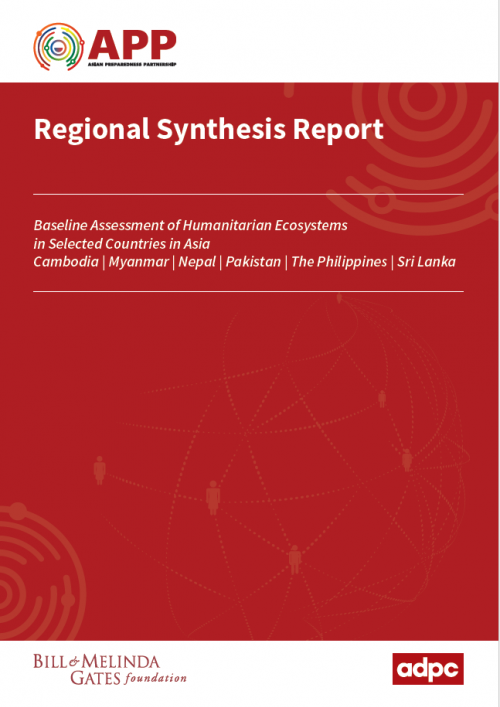The humanitarian architecture in Asia is still in its infancy stage, where the United Nations-led cluster system for humanitarian response is yet to be fully developed and implemented. This has resulted in duplication of efforts, limited access to humanitarian funds, lack of vertical and horizontal coordination, and a lack of leadership among local humanitarian agencies during mega disasters. The risk to communities in disaster prone areas is significantly higher due to elevated social vulnerabilities associated with the absence of institutional systems and mechanisms at local levels. There is an urgent need for additional complementary support devoted to strengthening local emergency response capabilities and establishing institutions and systems in order for at-risk countries in the region to be better equipped to face future disasters, which are likely to occur due to the evolving patterns of climate change.
Each program country part of APP undertook a country-specific baseline assessment to increase knowledge of the current context and engagement of government entities, local NGOs and civil society organizations, international organizations, the private sector, academia, and media in emergency response. Three countries are located in South Asia, namely Nepal, Pakistan, and Sri Lanka, and three are located in South-East Asia, specifically Cambodia, Myanmar, and the Philippines.This report is a regional synthesis of the country specific baseline assessment results that describes the humanitarian ecosystem in the region. The aim of this regional synthesis report is to serve as a road map to provide direction for future efforts aimed at building capacity, improving coordination, and strengthening the humanitarian institutional leadership of stakeholders.The content of this Volume 2 not only fills up the gaps in data analysis from the previous volume but also incorporates revised presentation of the comparative analysis between the countries.
